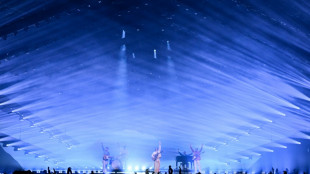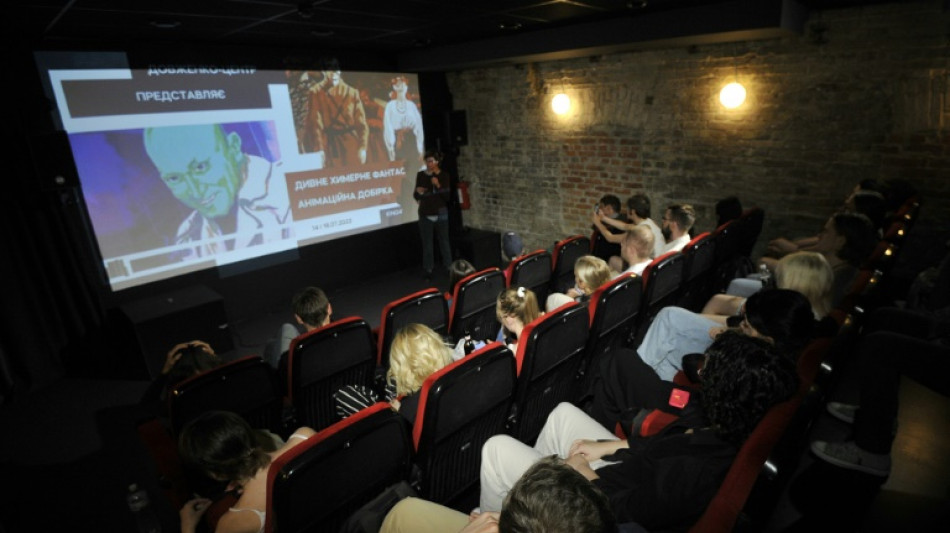
-
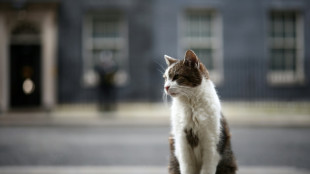 Paw patrol: Larry the cat marks 15 years at 10 Downing Street
Paw patrol: Larry the cat marks 15 years at 10 Downing Street
-
India plans AI 'data city' on staggering scale
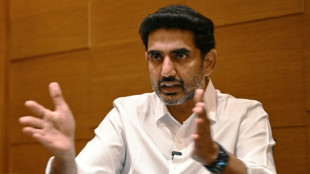
-
 Jamaica's Thompson-Herah runs first race since 2024
Jamaica's Thompson-Herah runs first race since 2024
-
Top seed Fritz to face Shelton for ATP Dallas Open title
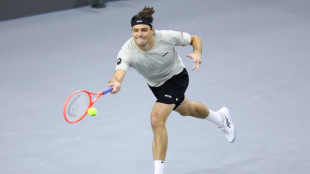
-
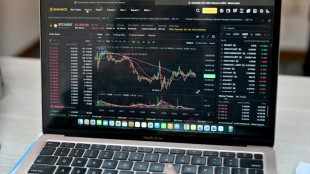 Crash course: Vietnam's crypto boom goes bust
Crash course: Vietnam's crypto boom goes bust
-
Ahead of Oscars, Juliette Binoche hails strength of Cannes winners
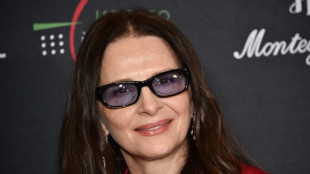
-
 US cattle farmers caught between high costs and weary consumers
US cattle farmers caught between high costs and weary consumers
-
New York creatives squeezed out by high cost of living
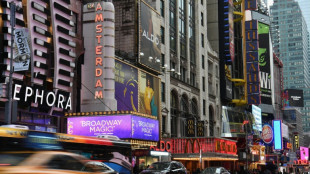
-
 Lillard matches NBA 3-point contest mark in injury return
Lillard matches NBA 3-point contest mark in injury return
-
NBA mulling 'every possible remedy' as 'tanking' worsens
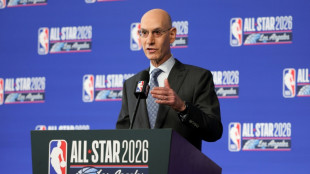
-
 Team USA men see off dogged Denmark in Olympic ice hockey
Team USA men see off dogged Denmark in Olympic ice hockey
-
'US-versus-World' All-Star Game divides NBA players
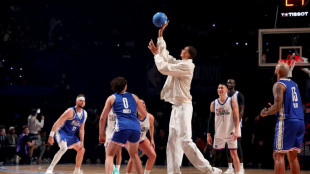
-
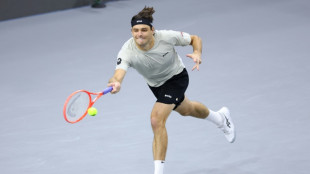 Top seed Fritz beats Cilic to reach ATP Dallas Open final
Top seed Fritz beats Cilic to reach ATP Dallas Open final
-
China's freeski star Gu recovers from crash to soar into Olympic big air final
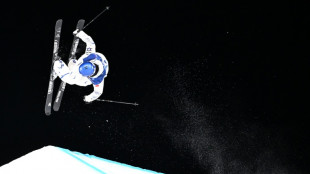
-
 Braathen wins unique Winter Olympic gold for Brazil, Gu overcomes scare
Braathen wins unique Winter Olympic gold for Brazil, Gu overcomes scare
-
Lens run riot to reclaim top spot in Ligue 1, Marseille slip up

-
 Last-gasp Zielinski effort keeps Inter at Serie A summit
Last-gasp Zielinski effort keeps Inter at Serie A summit
-
Vinicius bags brace as Real Madrid take Liga lead, end Sociedad run

-
 Liverpool beat Brighton, Man City oust Beckham's Salford from FA Cup
Liverpool beat Brighton, Man City oust Beckham's Salford from FA Cup
-
International crew arrives at space station
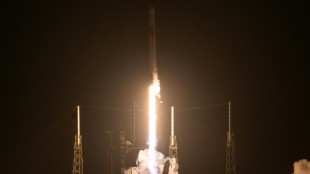
-
 Australia celebrate best-ever Winter Olympics after Anthony wins dual moguls
Australia celebrate best-ever Winter Olympics after Anthony wins dual moguls
-
Townsend becomes a fan again as Scotland stun England in Six Nations

-
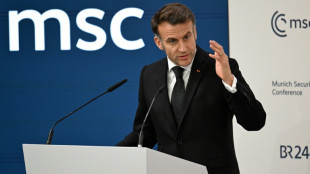 France's Macron urges calm after right-wing youth fatally beaten
France's Macron urges calm after right-wing youth fatally beaten
-
China's freeski star Gu recovers from crash to reach Olympic big air final
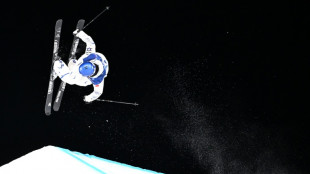
-
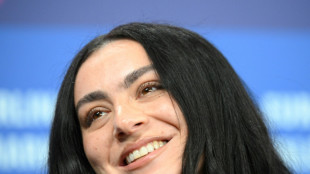 Charli XCX 'honoured' to be at 'political' Berlin Film Festival
Charli XCX 'honoured' to be at 'political' Berlin Film Festival
-
Relatives of Venezuela political prisoners begin hunger strike
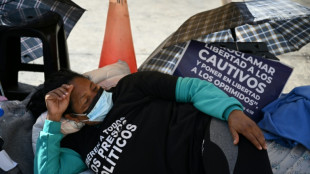
-
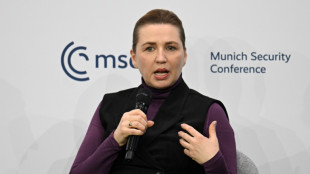 Trump's 'desire' to own Greenland persists: Danish PM
Trump's 'desire' to own Greenland persists: Danish PM
-
European debate over nuclear weapons gains pace
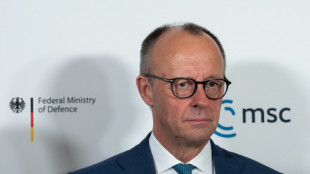
-
 Newcastle oust 10-man Villa from FA Cup, Man City beat Beckham's Salford
Newcastle oust 10-man Villa from FA Cup, Man City beat Beckham's Salford
-
Auger-Aliassime swats aside Bublik to power into Rotterdam final
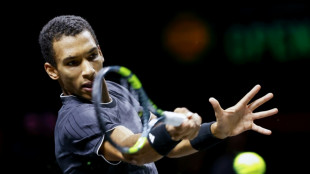
-
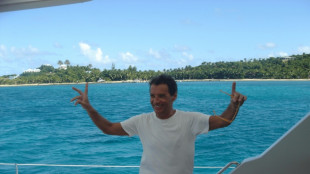 French prosecutors announce special team for Epstein files
French prosecutors announce special team for Epstein files
-
Tuipulotu 'beyond proud' as Scotland stun England

-
 Jones strikes twice as Scotland end England's unbeaten run in style
Jones strikes twice as Scotland end England's unbeaten run in style
-
American Stolz wins second Olympic gold in speed skating
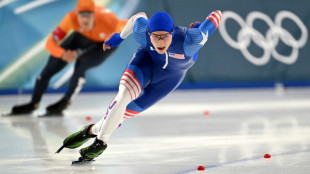
-
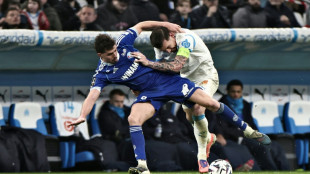 Marseille start life after De Zerbi with Strasbourg draw
Marseille start life after De Zerbi with Strasbourg draw
-
ECB to extend euro backstop to boost currency's global role
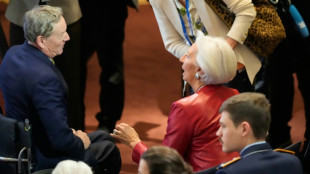
-
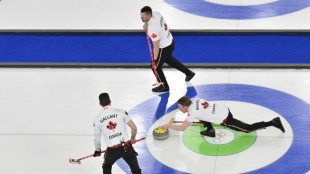 Canada warned after 'F-bomb' Olympics curling exchange with Sweden
Canada warned after 'F-bomb' Olympics curling exchange with Sweden
-
Ultra-wealthy behaving badly in surreal Berlin premiere
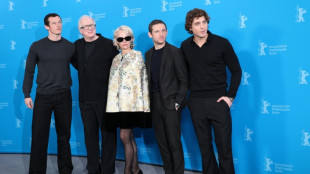
-
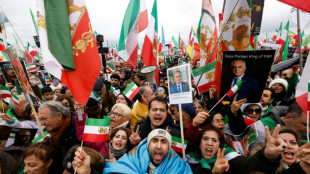 250,000 at rally in Germany demand 'game over' for Iran's leaders
250,000 at rally in Germany demand 'game over' for Iran's leaders
-
UK to deploy aircraft carrier group to Arctic this year: PM
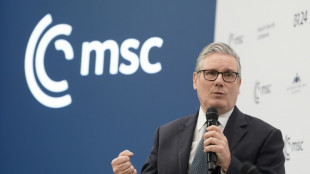
-
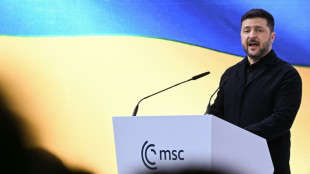 Zelensky labels Putin a 'slave to war'
Zelensky labels Putin a 'slave to war'
-
Resurgent Muchova beats Mboko in Qatar final to end title drought

-
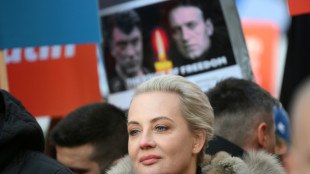 Russia's Navalny poisoned with dart frog toxin: European states
Russia's Navalny poisoned with dart frog toxin: European states
-
Farrell hails Ireland's 'unbelievable character' in edgy Six Nations win

-
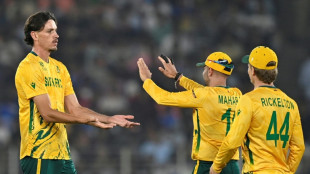 Markram, Jansen lead South Africa to brink of T20 Super Eights
Markram, Jansen lead South Africa to brink of T20 Super Eights
-
Guehi scores first Man City goal to kill off Salford, Burnley stunned in FA Cup

-
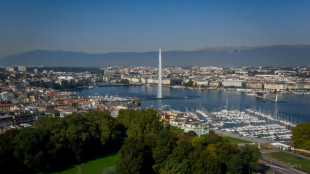 Swiss say Oman to host US-Iran talks in Geneva next week
Swiss say Oman to host US-Iran talks in Geneva next week
-
Kane brace helps Bayern widen gap atop Bundesliga

-
 Ireland hold their nerve to beat gallant Italy in Six Nations thriller
Ireland hold their nerve to beat gallant Italy in Six Nations thriller
-
European states say Navalny poisoned with dart frog toxin in Russian prison
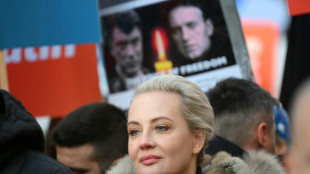

Ukraine's reopening cinemas offer refuge from reality -- and air raids
From the Hollywood blockbuster to the high-brow film noir, the silver screen offers a few hours' peace in a darkened refuge from the mundane grind of the nine to five.
But Ukraine's filmgoers have begun seeking literal shelter in subterranean screenings offering protection from the ever-present threat of missiles from above.
After Russia's invasion in February shuttered picture houses nationwide and production ground to a halt, the country's resilient film industry is making a tentative comeback.
KINO42, in downtown Kyiv, is among around 20 of the city's 50 or so cinemas that have reopened in recent weeks. As the capital's only underground cinema, it is a unique offering for movie buffs wary of air raids.
The screen -- which has 42 seats around four metres (13 feet) below street level -- reopened in June, its program of upcoming screenings displayed on a backlit board above the newly added words "cinema shelter".
"It's a literal cinema shelter since it's located in a basement," Ilko Gladshtein, a partner in the business, told AFP at the recent launch of its program of Ukrainian classics.
The theatre, which first opened in 2019, has always been underground -- but while this was once an unremarkable aspect of its architecture, Gladshtein says it has become a "unique selling point".
"KINO42 is the safest cinema in Kyiv right now. We don't interrupt screenings during air raids," he told AFP.
- Sold out -
The 37-year-old film festival manager and movie producer has been surprised by the size of the evening audiences, although the schedule has been bumped forward to accommodate an 11:00 pm wartime curfew.
"June is a tough month for film distribution, but I can see that people are hungry for films. We've held three charity screenings and sent around $1,000 to the Ukrainian army," he said.
"It gives us the confidence to know not only that we are entertaining people, but also that we are doing something important for the troops on the front."
Unlike multiplexes that screen the big Hollywood releases of the day, KINO42 has always prioritised Ukrainian cinema, and preserving the country's cultural identity has become especially important since the invasion.
The venue has teamed up with the Dovzhenko Centre, the nation's biggest film archive, and has expanded from one weekly screening to three, all sold out.
At a launch event on Thursday last week KINO42 put on "Odd, Bizarre and Fantastic," a series of animated shorts from the 1980s and '90s, with tickets all snapped up three days before the screening.
Stanislav Bitiutskiy, a 38-year-old researcher at the Dovzhenko Centre, says every social or political cataclysm forces a nationwide reckoning over Ukrainian identity.
"It first happened during the Maidan revolution," he told AFP, describing the aftermath of the deadly 2014 clashes between protesters and security forces that led to the overthrow of President Viktor Yanukovych.
"Now, once again, we need to redefine our identity by means of art."
- 'Another reality' -
A little further down the street, the much larger above-ground Zhovten picture house -- which is nearly a century old -- was among the first of Kyiv's reopened venues.
The multi-screen playhouse sold out a 400-seat auditorium on the launch night of its Ukrainian classics program with a showing of Sergey Paradzhanov's 1965 opus, "Shadows of Forgotten Ancestors."
"We wanted to support the country's economy as well as people's psychological wellbeing," said its director Yulia Antypova, 46.
"Psychologists say that this kind of mental decompression, and the opportunity to escape to another reality, are extremely important."
Here, the possibility of missile strikes is a constant threat.
Zhovten interrupts screenings for 20 minutes when the sirens begin and asks audiences to get to a nearby shelter.
If the alert lasts longer, the screening is cancelled and the customers are asked to come back with their tickets another day.
The return to the silver screen has been gradual, with ticket sales about 30 percent of pre-war figures.
Attendance drops every time a Russian missile slams into a civilian area.
"The human psyche is quite resilient though," says Antypova. "In a few days, attendance recovers -- until the next strike."
T.Khatib--SF-PST

